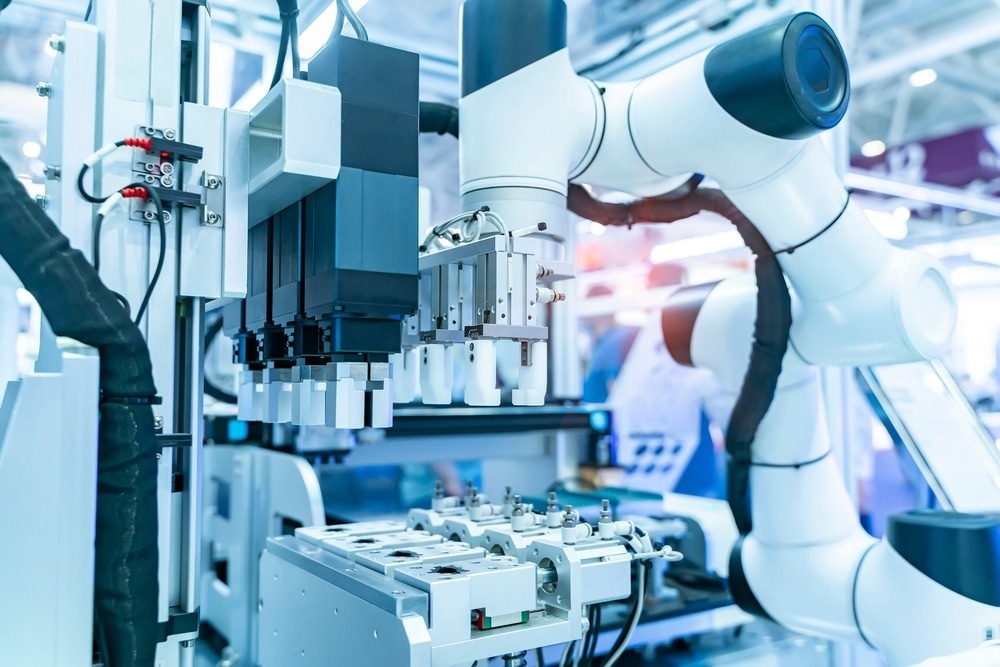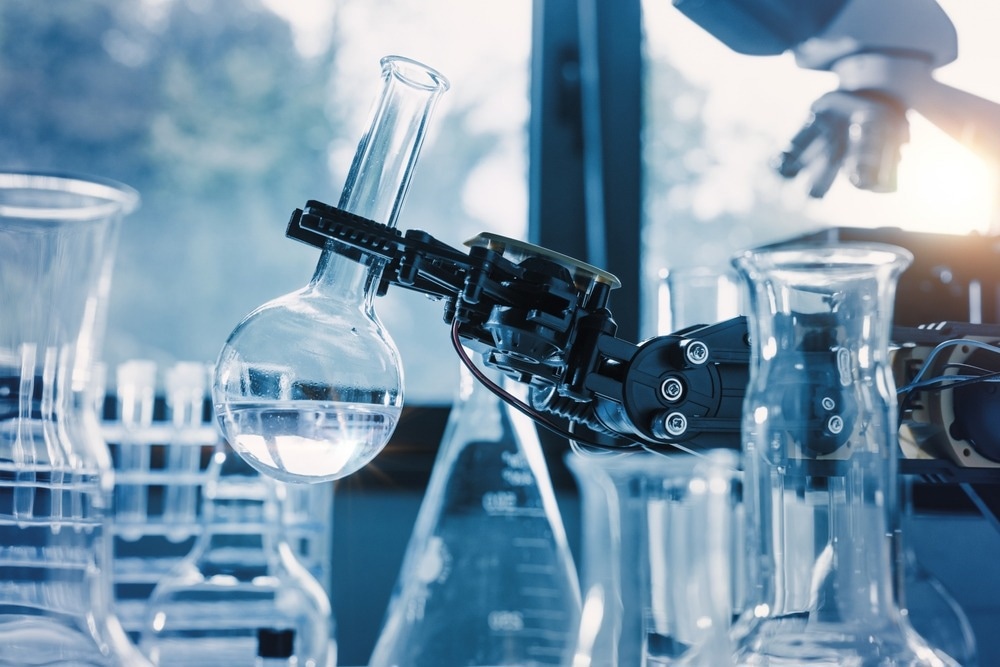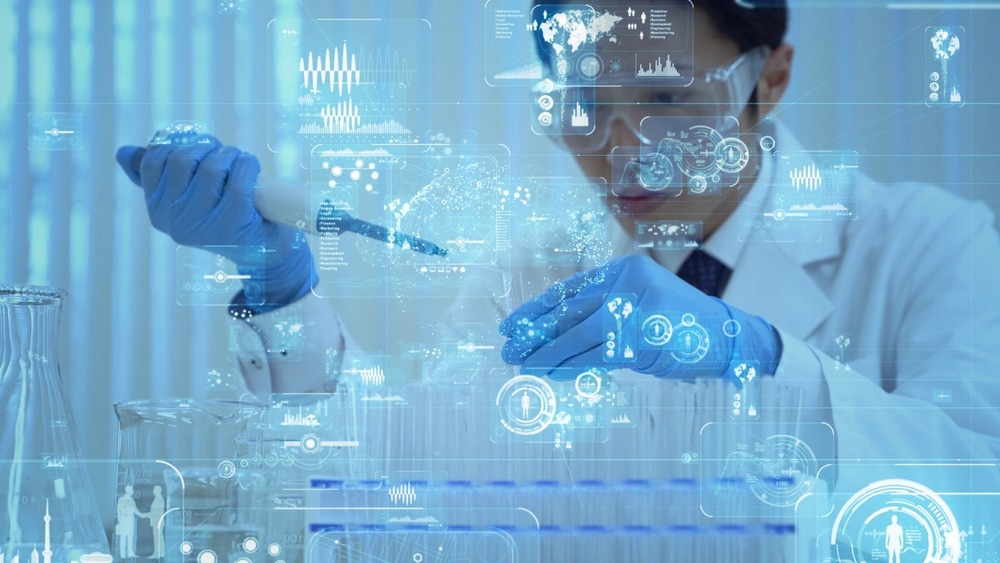As part of our SLAS US 2023 coverage, we speak to Luigi Da Via, Team Leader in Analytical Development at GSK, about the lab of the future, and what it may look like.
Please, can you introduce yourself and tell us what inspired your career within the life sciences?
Hello, my name is Luigi Da Via, and I am currently leading the High-Throughput Automation team at GSK. I have been with the company for the past six years, and I'm thrilled to be contributing to the development of life-saving medicines through the application of cutting-edge technology and automation.
My interest in automation started early on, as I grew up observing my father's company and the benefits that automation brought to their processes. Over time, I became passionate about the intersection of technology and science, and I feel incredibly fortunate to be able to apply that passion in my current role at GSK. By leveraging automation, we can accelerate the pace of drug development and help bring important treatments to patients faster and more efficiently.
You are currently the High-Throughput Automation team leader at GSK, one of the world's leading pharmaceutical companies. Can you tell us more about your day-to-day role and responsibilities?
As the High-Throughput Automation team leader at GSK, I oversee a team of talented scientists who are responsible for the scientific output of our automation processes. On a day-to-day basis, I work at the interface between different departments, including pre-formulators, engineers, and chemists, to ensure that we are all working together seamlessly and effectively.
One of my key responsibilities is to assess our current data management processes and make recommendations for improvement. I also regularly evaluate opportunities for investment in new technology and equipment that can help us optimize our automation capabilities and stay ahead of the curve in the fast-paced world of pharmaceutical development.
Ultimately, my role is all about driving efficiency and innovation in our automation processes so that we can develop new medicines more quickly and cost-effectively. I take great pride in being part of such an important mission, and I'm excited to see where our team's work will take us in the future.

Image Credit: asharkyu/Shutterstock.com
Automation within the life sciences has seen incredible advancements in recent years. What is meant by the term 'high‐throughput automation', and what fields of life sciences will benefit most from this type of automation?
If you ask everyone at SLAS 2023 what high‐throughput automation means, you will get very different answers as there is not a single definition available. To me, high throughput means the best way of designing experiments and making the most out of the data.
If you run more samples, you put a strain on the analytical techniques that are required to support specific screens, and that is where you encounter bottlenecks and roadblocks. To me high-throughput is more like a philosophical approach to designing better experiments to do less but understanding more, which can be applied to various fields. In fact, by using automation to streamline workflows and reduce bottlenecks, researchers can focus on generating high-quality data and making more informed decisions based on that data.
One of GSK's ambitions is to 'embed automated processes across all phases of drug development'. Why is this, and what advantages does automation provide to research?
At GSK, we believe that embedding automated processes across all phases of drug development is critical to improving efficiency, accelerating timelines, and ultimately bringing important new medicines to patients more quickly. By automating key aspects of the drug development process, we can reduce the risk of errors and variability, increase the speed and accuracy of data collection and analysis, and free up our scientists to focus on higher-level tasks that require human expertise.
Automation has enabled us to observe our processes and identify bottlenecks and inefficiencies. When automating a new workflow, you identify what the critical steps are, whether it is data analysis, analytical analysis of samples, or the execution of the workflow. By looking holistically at our processes, this has allowed us to optimize each of the steps.
We are currently focusing on automated data reporting, consolidating the workflow so they are user-friendly, and further optimizing and streamlining drug development processes.
Automated data reporting is a key area of focus, as this will help us better understand the results of our experiments and make more informed decisions about which drug candidates to advance.
Overall, the advantages of automation in drug development are clear, and we are committed to staying at the forefront of this rapidly evolving field. By investing in advanced automation technologies and expertise, we are confident that we can continue to make important strides in developing new treatments for patients in need.
On top of its many advantages, are there any challenges researchers face when trying to automate all processes within the lab setting? If so, how can these be overcome?
While automation has many benefits, there are also some challenges that researchers face when trying to automate all processes within the lab. The biggest challenge is integrating different platforms, whether it be combining different pieces of automation to build a workflow or integrating analytical techniques and data management aspects.
Another challenge is related to vendors and their proprietary data formats, which can't be integrated or exported. This can be a significant setback for pharmaceutical companies because they rely heavily on data, and if they can't unlock the full potential of their data, they may not be aware of its true value.
To overcome these challenges, researchers need to carry out data recycling to understand why terminated assets have failed and apply those learnings to increase the success rate of future molecules. They also need to pressure vendors to ensure that the data formats they produce are open source and open access, reducing concerns about software versions and integration of hardware. By doing so, they can ensure that data management processes are streamlined, and
researchers can access the information they need to make informed decisions.

Image Credit: Stock-Asso/Shutterstock.com
You are giving a presentation at SLAS 2023 titled 'Automation at GSK: Our Journey to the Lab of the Future'. Please can you give us an overview of what you will be discussing in this talk and what people can expect to learn?
During my presentation at SLAS 2023, I will discuss three key areas related to our journey towards the lab of the future at GSK. Firstly, I will explore how we train our personnel to ensure that automated systems are not a hindrance but rather tools that support success.
Secondly, I will highlight the importance of standardizing workflows to reduce attrition and achieve a faster turnaround time. Lastly, I will discuss the critical role of knowledge management in capturing and making information readily available to anyone who needs it. Attendees can expect to gain insights into how we have tackled these challenges at GSK and how they can apply similar approaches in their respective organizations.
What do you believe the 'Lab of the Future' to look like?
When it comes to the 'Lab of the Future', I believe there is no one-size-fits-all definition. Rather, it is a concept that will look different for each company and depend on factors such as culture, available resources, and the goals of the organization.
For some, the Lab of the Future might involve fully end-to-end automated platforms, where robots handle all aspects of the experimentation process. For others, it might involve mobile robots that interact with existing hardware and equipment to optimize workflows and reduce errors. And for some, it might mean labs that are completely free of human interactions, with everything from sample preparation to data analysis handled by machines.
However, regardless of the specific approach, I believe that the Lab of the Future should ultimately be focused on promoting the quality of scientific work and enabling researchers to do more with efficient tools. This means keeping people at the core of the process, and ensuring that we are designing these systems with an eye toward enabling, rather than replacing, human expertise.
In other words, automation and machine learning should be seen as tools to augment the work of scientists, rather than replace it. By empowering researchers with more efficient and effective tools, we can accelerate the pace of scientific discovery and ultimately make a bigger impact on the world.
Luigi Da Via (GSK) - SLAS 2023
At GSK, you are also involved in various research projects. Can you tell us about some of your latest research, including your aims and discoveries?
We have been working on various automated workflows. We are always eager to publish our findings and contribute to the advancement of science and medicine.
Recently, my team published work focused on studying the impact of food on the bioavailability of compounds. We found that the timing and content of a meal can significantly affect the solubility of a compound and its absorption in the body. Using high-throughput automation, we were able to simulate different meal scenarios and observe their effects on the solubility of compounds, with the aim of improving the design of drug formulations and ensuring their efficacy under real-life conditions.
As well as being directly involved in research projects, you helped create a periodical journal aiming to collect papers surrounding high-throughput experimentation within R&D laboratories. Why did you undertake this project, and what is the importance of sharing papers with other researchers in the field?
The community of individuals interested in high-throughput automation is committed to supporting each other. Our network consists of approximately 50-60 individuals who attend conferences and events to share knowledge and best practices. Initially, we established an online community where members could provide mutual assistance by sharing tips and tricks.
Subsequently, we noticed that there were no specialized journals dedicated to high-throughput automation research, so we decided to create a repository online to showcase the latest developments in this field. Nessa Carson and I established a website where individuals can upload their research papers. This website now has over 60 followers, and we plan to implement additional features to make it easier for people to categorize and search for papers, thereby enhancing accessibility to information.

Image Credit: metamorworks/Shutterstock.com
With automation becoming more common across the life sciences, especially in the pharmaceutical space, what are you most looking forward to in the coming years? Are there any application areas you are excited to see automation be applied to?
In the rapidly evolving field of automation in the life sciences, I am most excited about the integration of various technologies such as AI, ML, and vision optimization into automated workflows. While there isn't a specific application area that I am particularly interested in, having an optimized workflow with algorithms that can design the best experiments will be a game-changer. It will be like having a platform technology that can be applied to everything. In order to achieve this, we need tools like ChatGPT built in-house that can drive better experimentation and accelerate scientific progress.
What is next for you and your work at GSK? Are you involved in any upcoming projects?
We are currently working on consolidating workflows to improve our data management processes, by building data pipelines and visualisation tools. Additionally, we are developing AI/ML algorithms to predict molecule properties and using the generated datasets as proof of concept and training data. While this is just a small part of a larger project, I am excited to see the results in the near future.
About Luigi Da Via
Luigi Da Via’ is a Team Leader in Analytical Development at GSK working in the high throughput automation group.
He has a PhD in photochemistry and catalysis at the University of Liverpool (UK). In 2018 he was elected as a GSK Fellow, which recognizes the top 5% R&D staff as established leaders of science and mentors.
His current research involves the design, development, and deployment of new automated workflows for the screening of physicochemical properties of new assets during preclinical drug development.
His role is also focusing on establishing data management strategies to streamline the integration of robotic platforms and analytical instrumentation with the wider GSK IT infrastructure.